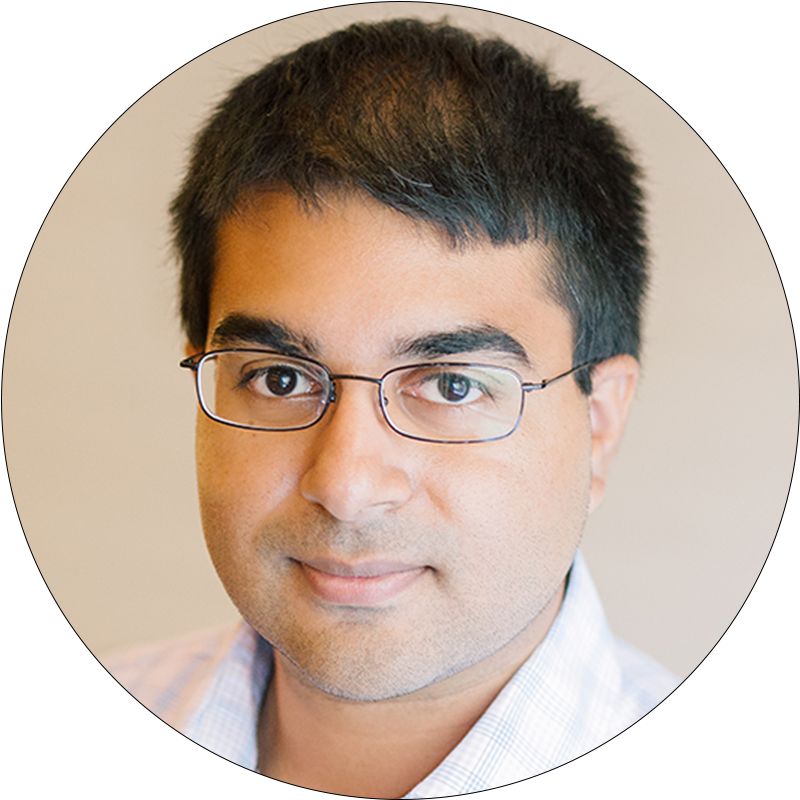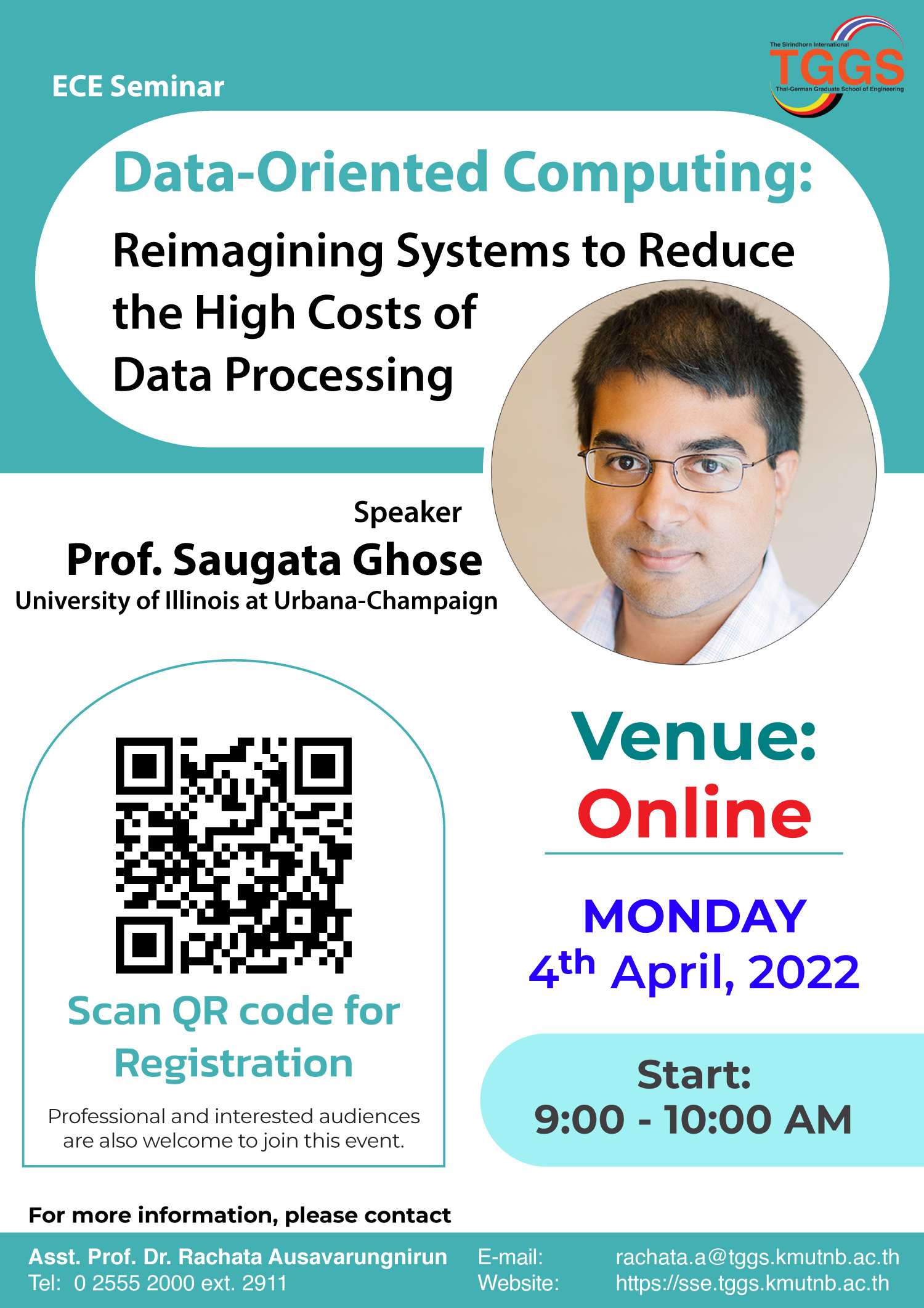ECE Seminar
Data-Oriented Computing:
Reimagining Systems to Reduce the High Costs of Data Processing

Prof. Saugata Ghose
University of Illinois at Urbana-Champaign
=== BIO ===
Saugata Ghose is an assistant professor in the Department of Computer Science at the University of Illinois Urbana-Champaign, where he leads the ARCANA Research Group. He holds M.S. and Ph.D. degrees in electrical and computer engineering from Cornell University, and dual B.S. degrees in computer science and in computer engineering from Binghamton University, State University of New York. Prior to joining Illinois, he was a postdoc and later a systems scientist at Carnegie Mellon University. He received the best paper award from DFRWS-EU in 2017 for work on solid-state drive forensics, and was a 2019 Wimmer Faculty Fellow at CMU. His current research interests include data-oriented computer architectures and systems, new interfaces between systems software and hardware, energy-efficient memory and storage, and architectures for emerging platforms and domains. For more information, please visit his website at https://ghose.cs.illinois.edu/
=== ABSTRACT ===
In recent years, there has been a rapid emergence of applications that interact with society in increasingly data-driven ways. Such data-centric applications spend a significant fraction of their time on accessing and processing very large datasets. Example applications include precision medicine, computer vision, unmanned vehicles, smart cities, graph frameworks, and mobile device workloads. Unfortunately, contemporary hardware platforms remain compute centric, relying on decades-old design principles that lead to high inefficiencies. Data-oriented computing platforms (e.g., near-data computing, systems with awareness of data semantics) can eliminate these inefficiencies and deliver substantial energy savings and performance improvements, but they can require the community to fundamentally rethink much of the compute stack.
In this talk, I will cover various challenges across the compute stack to implementing practical data-oriented architectures and systems, and highlight some of our work towards addressing these challenges. I will start with an overview of the current design space for data-oriented computing. Next, I will discuss the need for programmer and architectural support for near-data computing, focusing on efficient data coherence and on domain-specific system design. Then, I will discuss the need to co-design microarchitectures with circuits and devices to enable next-generation data-oriented computing using emerging memory technologies. I will conclude by proposing a plausible path to adoption for data-oriented computers, and touching on innovations that can be ported back to conventional von Neumann computing.
For more information, please contact
Asst. Prof. Dr. Rachata Ausavarungnirun
Tel. 0 2555 2999 ext. 2911
E-mail rachata.a@tggs.kmutnb.ac.th



